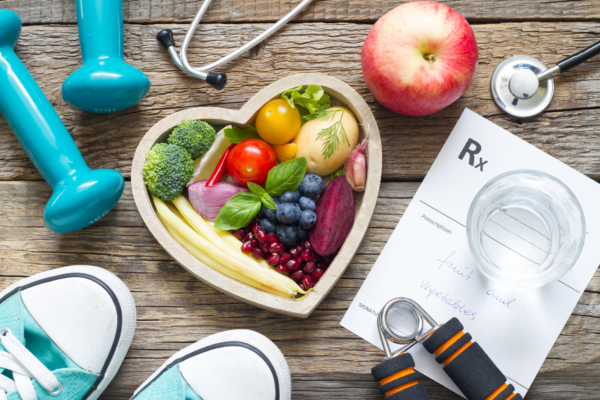
Preconception: Nutrition & Lifestyle Checklist to Support Fertility.
For both males and females
If you are planning a pregnancy or actively trying to conceive, there are many areas for both you and your spouse to optimize health-wise to increase your chances of conceiving, maintaining, and supporting a healthy pregnancy.
Areas that may warrant more attention and prioritization during this time (again, for both spouses) include: nutrient status, blood sugar regulation, gut health, thyroid health, metabolic and cell health, mineral status, hormonal balance, and possibly other areas as well, such as inflammation or environmental toxin exposure (ie, what you are exposing yourself to on a regular basis that has the potential to interfere with reproductive health, such as mercury and xenoestrogens).
Feeling overwhelmed? Understandable! But the good news is, that by focusing on building a solid foundation in both nutrition and lifestyle during this time, you are addressing most of these areas, and don’t have to necessarily dive deeper into them unless there are difficulties conceiving later (or if you already have one or more specific conditions that warrants additional support).
Begin this checklist as soon as possible-the more time you have to optimize your fertility and overall health for yourself and your future baby, the better. A minimum of 3-6 months before you begin trying to conceive (or more, especially if you already know you have any complex conditions to address such as an autoimmune condition) is ideal.
1. Objective health assessment (lab work):
Be proactive: don’t wait until you are struggling to conceive and/or maintain a pregnancy to get basic assessments. In addition to a basic physical and ideally meeting with a practitioner who can do a general analysis of your nutrition and lifestyle if you have never had this done or feel you could use some support in this area, the minimum basic labs both spouses should ask their practitioner to run for them when planning a pregnancy in the near future include:
- CBC and CMP
- A full thyroid panel + thyroid antibodies
- Blood sugar tests: HBA1C, fasting glucose and fasting insulin
- Inflammatory markers: homocysteine, hsCRP
- Iron studies
Depending on your current health status and if you have any other known conditions, imbalances, symptoms, or already established fertility issues, other areas of testing may be indicated on an individual basis through functional testing. This might include tests such as stool testing to assess your gut health, hair mineral testing to assess electrolyte and mineral imbalances, and a look into other areas that might require a deeper dive, such as your body’s stress response, ability to digest and absorb nutrients, excrete waste products of hormones, thyroid function, blood sugar regulation, and presence of any toxic metal elements in the body that could impact fertility, such as mercury (1, 2).
Other tests such as micronutrient testing, food sensitivity testing (food sensitivities can lead to systemic inflammation which is linked to subfertility), methylation assessment and genetic testing and vaginosis testing for females, seminal fluid analysis, DNA fragmentation, and/or anti-sperm antibodies test for males, or mycotoxin/mold testing may be areas to explore (based on your unique symptoms and relevant lifestyle factors and history) if there are difficulties conceiving later as well (3).
Again, all of these should be done on an individual basis depending on your needs, health, and risk factors.
2. Nutrition:
Start building your nutrient stores by eating now as if you are already pregnant. Do not wait until you are pregnant and possibly dealing with severe food aversions for at least 3 months to start. By the time you get that first pregnancy test (especially if you wait until after the anticipated first day of your menstrual phase in your cycle), your baby’s development is already rapidly underway, and neural development including the neural tube, which is highly dependent on nutrition status, is complete just 4 weeks after conception (at the point which you are classified as 6 weeks pregnant).
This is not enough time to drastically change your eating habits enough to address any possibly nutrient deficiencies once you find out you are already pregnant!
Optimizing preconception nutrition for both males and females is important, since sperm and egg health are greatly impacted by nutrient intake (4, 5)!
In general, one of the most important areas everyone should optimize in the pre-conception period with nutrition is:
Blood sugar balance: High blood sugar can increase androgens and estrogen for women as well as disrupt ovulation, decrease testosterone in men, and overall make conception less likely-research has found associations between time to conceive and higher blood sugar (7, 8, 9, 10).
Balanced blood sugar is also critical during pregnancy as a higher intake of sugar and carbs are linked to a higher risk of excessive gestational weight gain and other pregnancy complications, including gestational hypertension, preeclampsia, gestational diabetes mellitus (GDM), and premature delivery (11).
Studies have found associations between recurrent miscarriage and insulin resistance (12). This makes sense since high blood sugar can increase the risk of birth defects (13). Studies have found that mothers with frequent or prolonged hyperglycemia also have babies with elevated glucose levels, which can result in birth defects or other development abnormalities (13).
One study found that pregnant women with elevated blood-sugar levels are more likely to have babies with congenital heart defects, even if their blood sugar is below the cutoff for diabetes (14).
How to support blood sugar balance with nutrition:
- Aim for a minimum of 30 g/protein at each meal: protein is the main macronutrient that stabilizes blood sugar (and keeps you satiated so you won’t rely on less nutritious/potentially blood sugar spiking foods)
- Include at least 1 source of fat (ideally, at least 1 animal fat) at each meal
- Fiber: make roughly half your plate non starchy veggies you enjoy
- Always eat carbs with a good source of protein
- Limit consumption of processed carbs, and for carbs in general, only eat those you most love, since they aren’t essential
- Move for 10 minutes after at least 1 meal per day (walking, clearing the table/cleaning up etc)
- Eat meals in a “rest and digest” state (stress can spike cortisol which increases blood sugar levels): sit down, take 3 deep breaths before eating, say grace, chew each bite 15-30 times/until applesauce consistency, put your fork down between bites, eat without distractions (like work)
For an in-depth guide to preconception and prenatal nutrition, see the corresponding separate guide post!
3. Lifestyle:
Movement: Regular movement is an essential part of supporting your overall wellbeing, though it’s important to note that while studies show that exercise boosts female fertility, it is important to note that a large amount of very high intensity exercise can also reduce fertility (6).
Regular movement is also important to increase insulin sensitivity to keep hormones balanced and support balanced blood sugar during pregnancy.
The good news: walking just 10-20 minutes at a slow pace has been found to significantly improve your blood sugar levels after a meal (15)!
Tip: Instead of only doing one workout in the beginning or end of the day and being sedentary for the rest of the day (though if you have forms of exercise you enjoy, definitely continue these for 4-5 days per week), try to spread out small bouts of movement throughout the day, such as walking, stretching, or even doing housework!
Sleep: When it comes to sleep and fertility, sleep deprivation among men and women is increasingly reported as one of the causes of infertility, and research reveals that infertility across all ages is affected by the quality, timing, and duration of sleep. (16, 17).
Tips to improve your sleep:
- Start a “wind-down” bedtime routine 20 minutes before bed
- Sleep in a very dark, cool room
- Avoid electronics 1 hour before bed
- Try to eat dinner about 3 hours before bed
- Avoid caffeine after midday
- Try to do higher intensity exercise (like running) earlier in the day-before afternoon, if possible
- Incorporate soothing activities, such as reading, drinking herbal tea, or listening to classical music
- Pray night prayer!
Stress: While it’s not clear if stress directly impacts fertility, there are ways that stress can definitely interfere with hormone balance and inflammation in the body.
In times of stress, cortisol (our “stress hormone”) levels increase, which is especially problematic for hormones since progesterone helps make cortisol-which means more cortisol in the body equals lower progesterone levels. Long-term, or chronic stress, is especially depleting for progesterone levels. Progesterone is a key hormone for conceiving and maintaining a pregnancy, so without adequate levels in the body, both are negatively impacted.
Stress also increases general inflammation throughout the body, which reduces fertility for both males and females, and during pregnancy, psychosocial stress increases inflammatory markers that increase the risk for pregnancy complications such as preeclampsia and premature labor, as well as psychological conditions in the baby (systemic inflammation) (18, 19, 20,21)
Tips to manage stress:
- Include daily stress-management practices, such as taking deep diaphragmatic breaths/belly breathing, going for a walk, doing a craft or other activity you enjoy, talking to a friend/loved one, confession, mass, and adoration
- Pray the rosary
- Process your stress with a professional, as needed
4. Spiritual health:
There are so many unknowns during this time, and if spiritual health is shaky while trying to conceive, it will make it even more difficult.
As a bonus, prayer is often recognized even in research to be a valid form of stress relief, which means it can help promote balanced cortisol levels and reduce inflammation during this time (22, 23)!
Tips to improve spiritual health while TTC:
- Go to daily mass
- Go to adoration as often as able
- Pray Divine Office
- Pray the rosary
- Pray with your spouse, daily
- Go to confession
- Talk to a priest/seek spiritual direction
- Offer up your suffering for causes near and dear to your heart
- Increase your devotion to patron saints of infertility, pregnancy, pregnancy loss, such as these with a novena and/or daily prayers
- Read about women in the bible who placed their trust in God while trying to conceive, such as Hannah
5. Supplementals:
Think of supplements as a back-up or insurance plan: food first (where nutrients are in their most bioavailable/best absorbed form) though a prenatal vitamin is generally recommended for most women while trying to conceive or planning a pregnancy in the near future, it may not actually be a must for you if you have an incredibly nutritious diet. A high quality prenatal vitamin is also a good idea if you think you may struggle with first trimester nausea and vomiting (based on a past pregnancy) or feel more comfortable having it as a back-up nutrient source. However, it’s important to remember that a prenatal vitamin is a backup, and should not be considered the best or primary source of any individual or collective nutrients (nor should any other supplement be).
If you have a diet lacking in any animal proteins that provide essential nutrients for fetal development, (if you are “plant-based” or if you do not consume much meat, fish, or eggs), then a prenatal which contains these missing nutrients is a must.
If you are unsure if your diet meets the specific requirements for supporting a pregnancy, it is highly recommended that you work with a knowledgeable practitioner before you become pregnant who can assess your current intake and make personalized recommendations for your and your future baby’s needs.

Claire Gilmore, CNS, LDN
Functional nutritionist & licensed dietitian
Claire Gilmore is a Certified Nutrition Specialist (CNS) and Licensed Dietitian Nutritionist (LDN) with a master’s in clinical nutrition, but her favorite title is mom (to two precious girls).
Leave a reply
